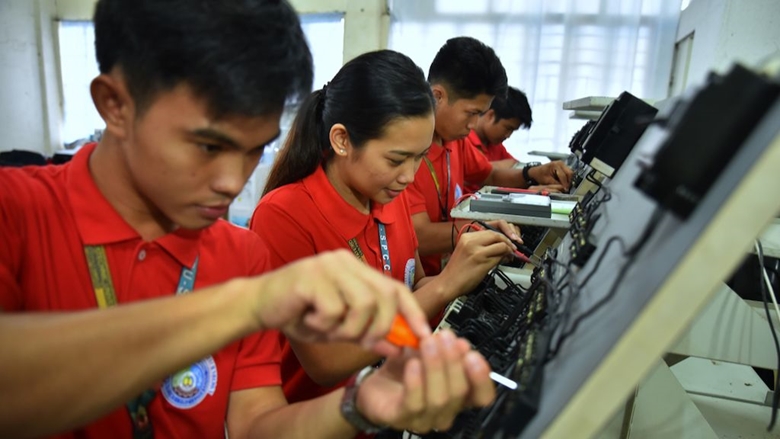Philippines invests USD500 million to boost its labor market recovery
Friday, 27/01/2023 09:58 (GMT+7)
(CPV) - The Asian Development Bank (ADB) has approved a USD500 million policy-based loan to help the Philippine government address the impact of the COVID-19 pandemic on jobs, livelihoods, and the labor market. It will also help create an enabling environment for existing and emerging businesses to flourish and spur more employment.
 |
| Source: ADB |
Under the Post-COVID-19 Business and Employment Recovery Program, ADB is assisting the government in creating a more liberalized business and investment environment to encourage the private sector to grow and create more jobs. The program also supports government initiatives to expand labor market programs that address skills mismatches and promote training to reskill and retool workers to meet new demands in the post-pandemic jobs market.
“With the economy slowly moving towards a sustainable growth path, it is important to ensure private enterprises are supported with policies that make it easier for them to do business and generate employment,” said ADB Senior Public Management Economist Sameer Khatiwada. “This program is expected to help create jobs, get businesses back into action, and pave the way for displaced workers, youth, and women to return to the labor market by enhancing their skills through training and linking them to good quality jobs.”
The Philippine workforce was hit hard by the COVID-19 pandemic, with the country recording the steepest decline in employment rates among Southeast Asian countries in 2020. While the unemployment rate declined to 4.2% in November 2022 from 6.5% a year earlier, labor market recovery remains uneven. For example, wage employment in private establishments remains lower than pre-pandemic levels. Similarly, informal employment remains higher, even though it has declined in recent months.
To address this problem, the government launched in May 2021 the National Employment Recovery Strategy (NERS) 2021–2022 to improve workers’ access to jobs, livelihoods, and training and to support the private sector in creating sustainable work opportunities. The new loan program will help the government implement the NERS and achieve its targets to raise employment by 2025. ADB assisted the government in facilitating dialogue with key industry stakeholders on designing the NERS.
Another ADB-supported government initiative under the program is the private sector-led SkillsUpNet Philippines, which provides grants to networks of enterprises to fund workplace skills training in four priority sectors—information technology animation, construction, agribusiness, and tourism. Women-led enterprises will also receive skills training under the scheme since women workers have been the most negatively affected by the pandemic, with many of them finding it difficult to re-enter the workforce.
The new loan program draws on ADB’s experience since 2010 in supporting the government’s employment facilitation, secondary education, and social protection programs. In particular, it expands the ADB-financed Facilitating Youth School-to-Work Transition Program, which helped the government introduce and strengthen active labor market programs through public employment service offices nationwide and JobStart Philippines life skills training for at-risk youth./.
Khac Kien